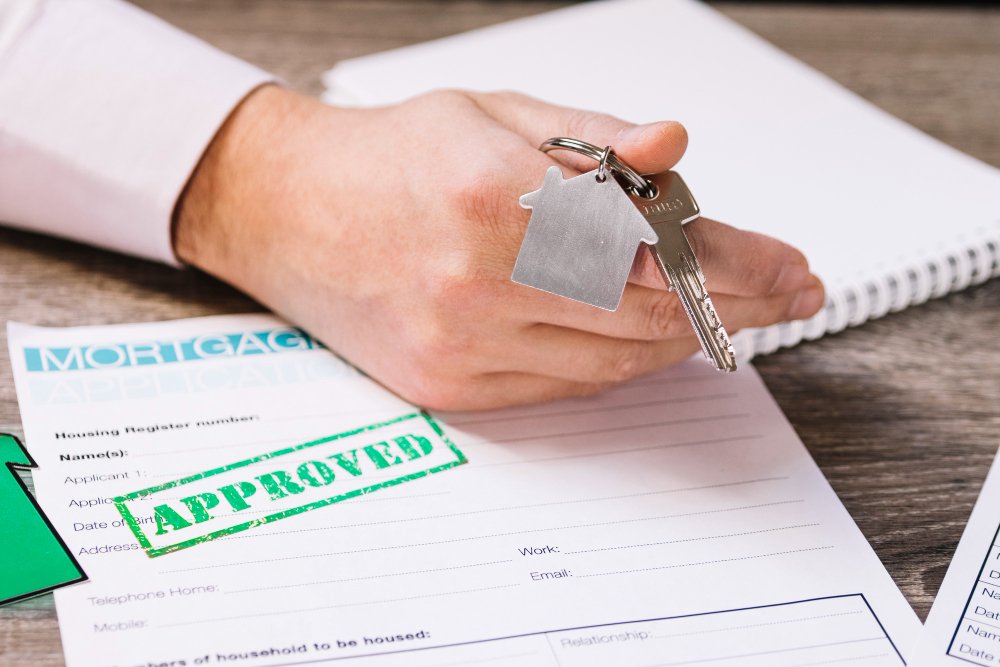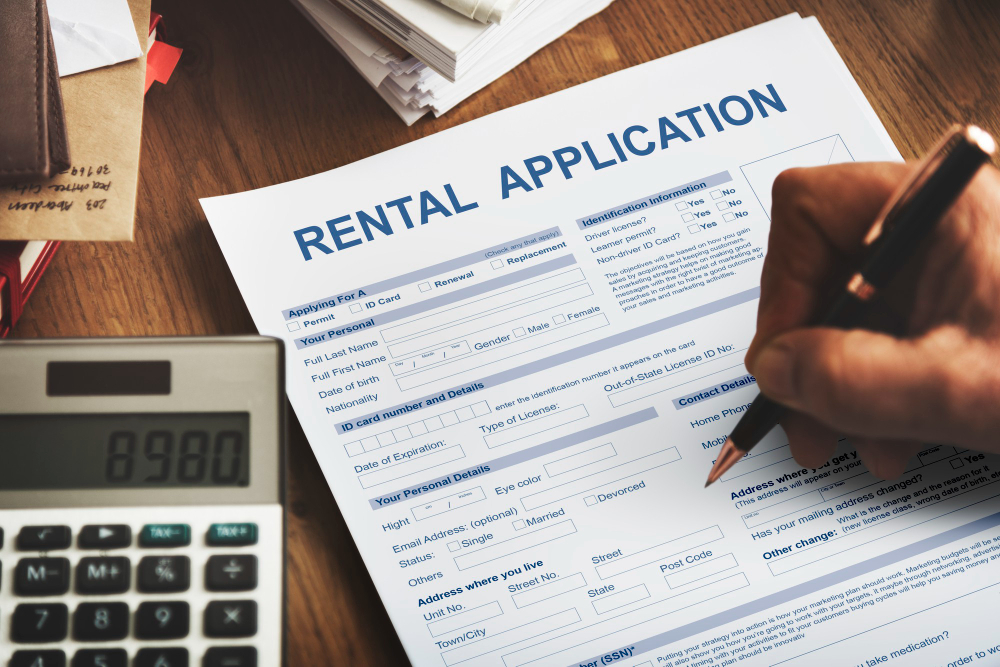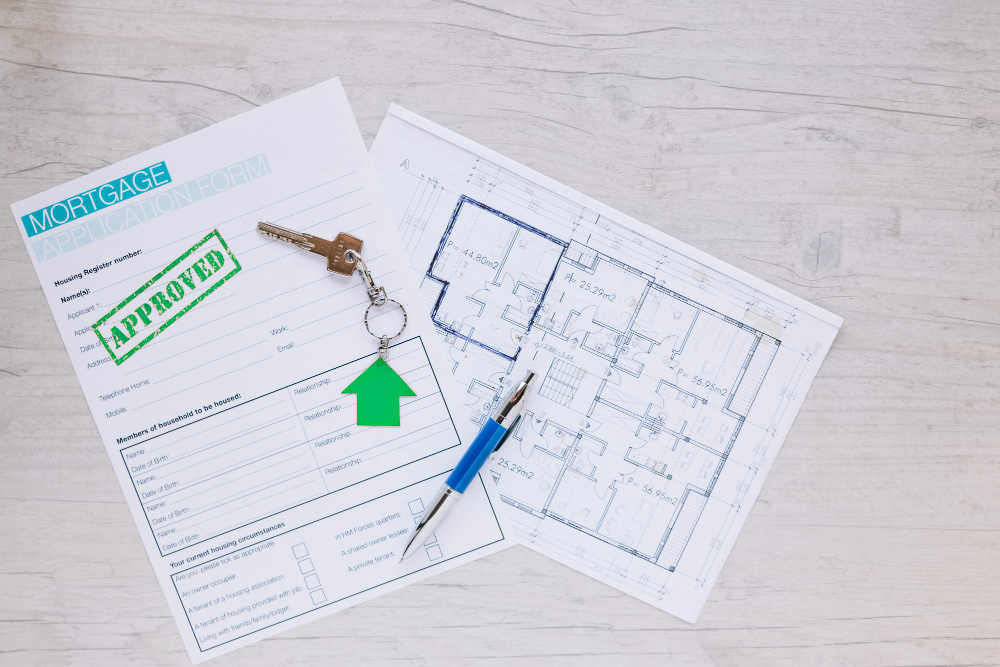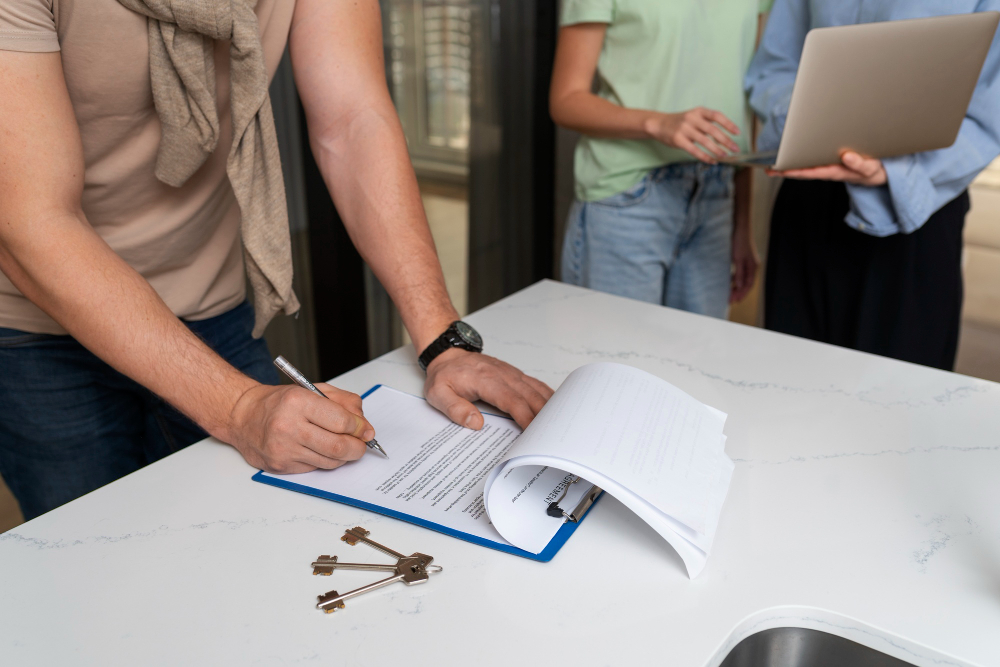Never Sign an Apartment Lease Without Reading These 5 Points
Author
Ali Ashour
Time
11 Min.
Language
English
Created:
3/11/2024
Updated:
4/15/2024
Entering into an apartment lease can be a significant commitment; it's a legally binding contract that sets the terms for your occupancy and use of the property.
Tenants and landlords alike must thoroughly understand the lease before signing to prevent misunderstandings and legal complications. Agreeing to a lease without fully grasping its conditions can lead tenants to face unexpected obligations or forego certain rights.

Knowing what to look for in an apartment lease agreement is crucial, from recognizing financial responsibilities to the possibility of negotiating terms. In the forthcoming sections, we will explore key aspects such as the financial implications of leasing an apartment, the role of a co-signer, and the importance of understanding renter's insurance and utility responsibilities for a well-informed rental experience.
Understanding the Lease Agreement
When delving into an apartment lease, it's vital to scrutinize every clause to avoid future complications. Here are key elements to focus on:
lease Specifics:
· Full names of all occupants to ensure shared accountability.
· Lease duration, renewal options, and early termination procedures.
· Monthly rent amount, due dates, penalties for late payments, and rent increase policies.
Financial Obligations:
· Security deposit amount, conditions for withholding, and refund policies.
· Understand what the rent covers and any additional fees such as utilities or amenities.
Property Use and Maintenance:
· Responsibility for repairs and maintenance.
· Rules regarding property alterations and subletting.
· Policies on pets and guests to avoid violating terms .
Legal and Dispute Clauses:
· Dispute resolution methods and legal considerations that might affect the tenancy.
· Ensure any special arrangements or disagreements are documented and initialed by both parties.
End of Lease and Security:
· Procedures for property inspection at the end of the lease to ensure the return of the security deposit.
· Clauses defining 'normal wear and tear' to prevent disputes over the security deposit.
· Ensure to document the apartment's condition at the start to avoid charges for pre-existing
damages. Always remember, a signed and dated lease is legally binding and protects both the landlord and tenant.
Evaluating Financial Commitments
Before you sign on the dotted line, evaluating your financial commitments is a fundamental step in the apartment leasing process. Here's what to consider:

· Monthly Rent and Associated Fees: Your lease should clearly state the monthly rent, due date, and acceptable payment methods.
· Initial and Ongoing Expenses: Prepare your budget to include the rental application fee, security deposit, and potential pet fee.
· Financial Readiness and Living Within Means: Ensure the rent doesn't exceed 30% of your monthly income.
· Credit and Savings Considerations: Landlords often conduct credit checks; a good score may reduce upfront costs, while a lower score could mean paying more initially.
· Market Research and Hidden Costs: Conduct thorough research on apartment rentals in the area to set a realistic budget.
The Role of a Co-signer
In the context of apartment leasing, the role of a co-signer is pivotal, especially for tenants who may not meet the financial requirements on their own. Here are two essential points to understand about co-signers:

· Responsibility of a Co-Signer: A co-signer is someone who agrees to take on the legal obligations of the lease if the primary tenant fails to fulfill their responsibilities.
· Financial Liability: It's crucial for co-signers to recognize that their financial responsibility doesn't end even if they never occupy the apartment.
· Understanding these points is vital for both potential co-signers and tenants to ensure they are entering into the lease agreement with a clear comprehension of the commitments involved.
Location and Timing Considerations
When considering where and when to sign an apartment lease, take into account the following factors:

· Lease Term: Most leases last for 12 months, but you might find options for 6 or even 18 months. Your choice should align with your future plans and the level of commitment you're comfortable with.
· Rent Due Date: Typically, rent is due on the first of the month, with a common grace period of 3-5 days. Mark this in your calendar to avoid late fees.
Location is key for a convenient lifestyle:
· Daily Impact: Think about how the location will affect your everyday life. Consider commute times, access to public transport, and the availability of amenities like grocery stores and parks. Safety and opportunities for socializing are also crucial.
· Amenities: Look for easy access to essential services such as supermarkets, healthcare, and recreational facilities. This proximity can save time and enhance your quality of life.
· Safety: Investigate the neighborhood's safety by researching crime rates and checking for well-lit streets and secure building access.
Timing is everything in apartment hunting:
Seasonal Considerations: Summer may offer more choices but at higher prices, while winter could provide better deals due to lower demand. If you live in a college town or tourist area, these patterns could be even more pronounced.
· Search Strategy: Start researching and setting a budget at least 90 days before moving. Begin viewing apartments 60 days out, and aim to make a decision within 30 days of your move-in date to secure the best options.
· Market Fluctuations: Keep in mind that seasons can affect availability and pricing. The high season typically runs from July to September, with October to March offering potentially lower rents.
Before signing a lease, draw a circle on a map around the place most important to you—be it your job, school, or a relative's home to help narrow down your search area. This visual guide can focus your search and ensure the location fits your lifestyle.
Understanding Renter's Insurance and Utility Responsibilities
Understanding the intricacies of renter's insurance and utility responsibilities is crucial for tenants to avoid unexpected costs and ensure their personal property is protected:
Renter's Insurance Insights:
· Although not mandated by law in Massachusetts, renter's insurance is highly recommended to safeguard personal belongings.
· A typical policy covers personal property damage or theft, additional living expenses if the home is not habitable, and personal liability.
Utility Responsibilities:
· Tenants are often expected to pay for their own electricity and gas, as outlined in the lease agreement.
· Conversely, landlords typically cover water and sewer bills but may pass on usage charges to tenants.
· Utility companies must provide a 30-day notice to tenants before terminating services for non-payment, and landlords can't shut off utilities except for repairs or emergencies.
What's Included and Refundable:
· Clarify which utilities are included in your rent, such as water, sewer, or trash pickup.
· Understand the conditions for refundable deposits, as damage and cleanliness at move-out can influence refunds.
· Be aware of the required notice period for moving out, commonly 30 days, but it can extend up to 3 months.
By keeping these key points in mind, tenants can better prepare for the financial aspects of leasing and protect themselves from potential disputes or losses.
Conclusion
Navigating the complexities of an apartment lease demands keen attention to detail and an understanding of one's rights and responsibilities. We've examined the critical elements—from the financial commitments and the implications of having a co-signer, to considering location and understanding renter's insurance and utilities.






